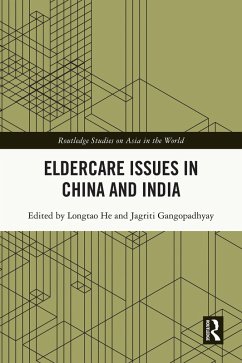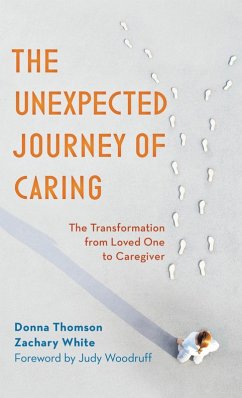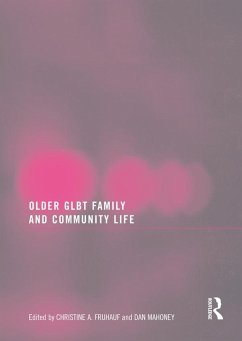
Eldercare Issues in China and India (eBook, PDF)
Versandkostenfrei!
Sofort per Download lieferbar
41,95 €
inkl. MwSt.
Weitere Ausgaben:

PAYBACK Punkte
21 °P sammeln!
The contributors to this book present case studies of elder care in China and India, and draw comparisons between the two - illuminating some of the key issues facing the two largest Asian countries as they develop rapidly.Caring for the elderly is a major challenge for all countries, and one which is of acute concern for rapidly developing economies. Development tends to run counter to long-established cultural norms of family-based caring and filial piety, even as it also tends to lead to longer life expectancy. Taking a range of methodological and conceptual approaches to understanding thes...
The contributors to this book present case studies of elder care in China and India, and draw comparisons between the two - illuminating some of the key issues facing the two largest Asian countries as they develop rapidly.
Caring for the elderly is a major challenge for all countries, and one which is of acute concern for rapidly developing economies. Development tends to run counter to long-established cultural norms of family-based caring and filial piety, even as it also tends to lead to longer life expectancy. Taking a range of methodological and conceptual approaches to understanding these challenges, the contributors present a multifaceted understanding of elder care issues in both India and China. They focus in particular on caregiving within families and at care homes - and the impacts these have on quality of life and the experience of caregiving for both caregivers and the aged themselves.
An invaluable collection for scholars and students of gerontology and aging in Asia, that will also be of great interest to scholars with a broader interest in global trends in caregiving.
Caring for the elderly is a major challenge for all countries, and one which is of acute concern for rapidly developing economies. Development tends to run counter to long-established cultural norms of family-based caring and filial piety, even as it also tends to lead to longer life expectancy. Taking a range of methodological and conceptual approaches to understanding these challenges, the contributors present a multifaceted understanding of elder care issues in both India and China. They focus in particular on caregiving within families and at care homes - and the impacts these have on quality of life and the experience of caregiving for both caregivers and the aged themselves.
An invaluable collection for scholars and students of gerontology and aging in Asia, that will also be of great interest to scholars with a broader interest in global trends in caregiving.
Dieser Download kann aus rechtlichen Gründen nur mit Rechnungsadresse in A, B, BG, CY, CZ, D, DK, EW, E, FIN, F, GR, HR, H, IRL, I, LT, L, LR, M, NL, PL, P, R, S, SLO, SK ausgeliefert werden.













